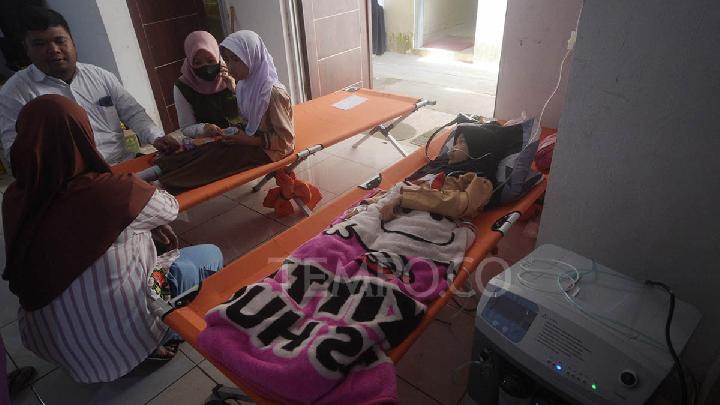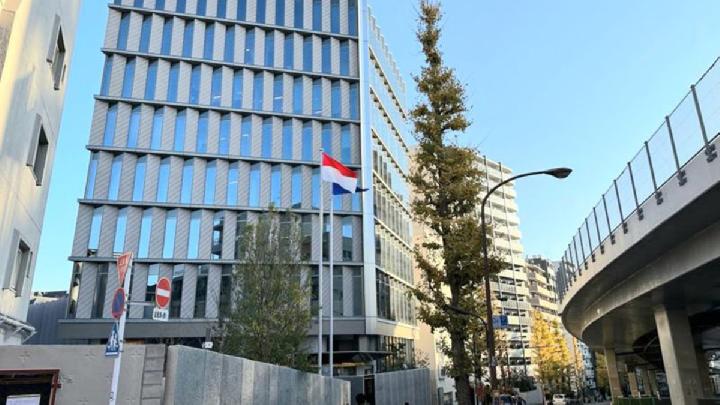By: Vineet Thakur, Leiden University.
After over 21 months of live-streamed killings in Gaza that leading experts have unanimously called a genocide, even European politicians had begun to feebly question Israel’s inhumane offensive.
However, Israel’s ‘pre-emptive’ strikes on Iran last month, which led to a 12-day war, tautly pulled European politicians back into Prime Minister Benjamin Netanyahu’s embrace.
Rehearsed statements about European values and Israel’s ‘right to exist’ were pronounced immediately, delivered with the smug and bureaucratic indifference perhaps most easily identified with the European Commission’s President Ursula von der Leyen.
To these proceedings, the German Chancellor, Frederic Merz, added some blunt intensity when he commended Israel for doing the West’s drecksarbeit or ‘dirty work’. This ‘dirty work’, since October 7, 2023, has ostensibly included over 35,000 attacks across five countries, the Occupied Palestinian Territories, Lebanon, Syria, Yemen, and Iran.
Some weeks earlier, in a press conference with US President Donald Trump where the American leader was uncharacteristically better behaved than usual, Merz had asserted that he saw the defeat of the Nazis as a liberation of Germany. Meanwhile, he has repeatedly blamed the rise in antisemitism in Germany on immigrants.
Put together, these statements from the leader of Europe’s largest country signify a stunning re-wiring of historical memory in which, first, Germany becomes a victim of both the Nazis and antisemitism and second, the real threat to Europe emerges from Islamic countries and people.
The fundamental premise of the Jewish state being left to do the ‘dirty’ work—since Europe itself is too civilised to deal with it—is of course foundationally antisemitic. It is a stunningly perverse exceptionalism, where Israel must operate outside the remit of international law and ethics because Europe can’t.
While European politicians have been predictably obsequious towards Israel, and their hatred of Muslims in general (as is evident in their anti-immigrant rhetoric) and towards Palestinians specifically, has been conveniently bubble-wrapped with the charge of antisemitism, there is also a visible shift in the public mood on the issue.
People’s protests
Large numbers of Europeans have regularly thronged the streets to protest their governments’ complicity in the genocide. In June 2025 alone, hundreds of thousands of people marched in protest across various European cities.
London, which has held monthly pro-Palestine protests—a protest in November 2023 saw over a million people attend—hosted two large protests last month. Over 300,000 people took to the streets in Rome, nearly 150,000 in The Hague, which houses the International Court of Justice where South Africa has accused Israel of genocide as well as the International Criminal Court which has issued an arrest warrant for Netanyahu, and 110,000 people marched in Brussels, where the EU is headquartered.
The French were, characteristically, drawn to the barricades when Israeli forces detained activists onboard the flotilla ‘Madleen’, which included the French-Palestinian European parliament member Rima Hassan. Several thousands also showed up at the Paris Air Show, calling for an end to Israeli participation. About 125 cities in Spain held simultaneous protests on June 14. A protest in Madrid a month before saw an attendance of 50,000 people.
Cities across Europe, including Lisbon, Berlin, Bern, Copenhagen, Athens, and Stockholm, showed their solidarity towards Palestinians and their opposition towards their governments. In many of these protests, protesters wore red clothes, creating a symbolic ‘red line’ against the governments’ complicity.
Both the numbers and the widespread nature of these protests indicate a groundswell of public opinion against their governments’ support for Israel. A recent UK poll revealed that 57 per cent of the British public supported an arms embargo on Israel and 54 percent supported expelling Israel from the UN. College campuses across Europe and Britain have become the chief sites of Palestinian solidarity. Another poll shows that between the age groups of 18-24, support for Palestine has grown from 16 per cent in November 2019 to 58 per cent in June 2025.
Furthermore, the most recent YouGov EuroTrack Survey indicates that public support for Israel has drastically plummeted across six tracked countries, i.e. Britain, Denmark, France, Germany, Italy and Spain, with 63-70 per cent people polled taking an unfavourable view of Israel. The American think tank, Pew Research Center, also confirms these findings.
Meanwhile, as people have streamed onto the streets, politicians have swiftly deployed their police forces. In late 2024, the European Civil Forum, a transnational network spread across 27 countries, had reported that at least 836 incidents ‘rang[ing] from threat of legal action to harassment, intimidation, violence, threats to citizenship or residency status, smear campaigns, cyber-attacks and surveillance’ had taken place across Europe states since October 7, 2023. The German state led with 281 such incidents, followed by the UK (244), the Netherlands (87), France (79), Italy (58), Switzerland (20), Austria (17) and 50 incidents in other European states.
The Civil Forum’s updated report for 2025 notes several more incidents, including Germany deporting pro-Palestine protesters and carrying out coordinated police raids against activists for pro-Palestinian crimes, the Austrian police using drones, surveillance vans, police dogs, lorries, and a crane to clear out an encampment in Vienna, and a general increase in rights violations and arrests in other European countries.
There is, in general, an alarming increase in criminalisation of pro-Palestinian protests. Denmark has proposed to grant new powers to the police to combat ‘antisemitic crimes’, emphasising on antisemitism that is ‘generated out of a contempt for the State of Israel’. The most egregious recent example is the passing of a bill in the UK parliament on July 2 that bans Palestine Action, a prominent campaign group, as a terrorist organisation for the crime of spraying red paint on two planes at a military base.
The gulf between the people and their governments couldn’t be starker.
In his powerful anticolonial essay Discourse on Colonialism, the Martinique writer-politician Aimé Césaire had written: ‘colonialism works to decivilize the colonizer, to brutalize him in the true sense of the word’. Israel’s colonial war in Palestine has found the most willing defenders in Europe’s politicians.
But this is not just a faraway war. As people rise in indignation and horror at the daily massacres unfolding on their screens, European politicians are slowly but surely enacting a whole set of legal, political and technological infrastructure to constrict freedoms in Europe, to take away rights, and to block every space for meaningful action in solidarity with a people being genocided. They serve a politics that unleashes and legitimises rampant Islamophobia in the name of preventing antisemitism.
‘…[S]lowly but surely, the continent proceeds towards savagery’, Césaire had warned.
Originally published under Creative Commons by 360info™.
*) DISCLAIMER
Articles published in the “Your Views & Stories” section of en.tempo.co website are personal opinions written by third parties, and cannot be related or attributed to en.tempo.co’s official stance.

















































